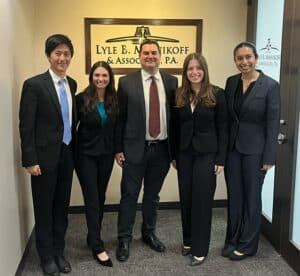Need a Little Something Extra?
An injured worker who is receiving permanent total disability benefits is entitled to an additional supplemental amount each year. § 440.15(1)(f) Fla. Stat. How this amount is calculated and who pays depends on when you were injured. If you were injured on or before September 30, 2003 your supplemental amount is equal to five percent of your weekly compensation rate in effect on the date of the injury, multiplied by the number of calendar years since the date of injury. § 440.15(1)(f) Fla. Stat. 1997. In other words, 0.05 x your compensation rate x the number of years since your injury = your supplemental amount.
Using this formula, your supplemental benefit will equal your basic benefit by year twenty. However, you are still bound by the maximum compensation rate in effect at the time of payment. That means that your basic benefit combined with your supplemental benefit can never be more than the maximum compensation rate at the time of payment.
What if I was injured after September 30, 2003? You are still entitled to supplemental benefits. The major exception with accidents after September 30, 2003 is that your supplemental benefits are now equal to three percent of your average weekly compensation opposed to five. Fla. Admin. Code. R. 69L3.01945.
Who pays?
The entity that is responsible for payment of these supplemental benefits also depends on the date of injury. If your injury was before July 1, 1984, the Division of Worker’s Compensation (the State of Florida) pays. For injuries subsequent to July 1, 1984 the employer/carrier is on the hook.
Am I entitled to these supplemental benefits for the rest of my life?
Depends. For accidents through September 30, 2003 and for injuries occurring on or after July 1, 1990, entitlement to supplemental benefits ends at age 62 if your eligible for both social security disability and social security retirement benefits. This is the case whether or not you have even applied for them. § 440.15(1)(e)1. Whether or not these benefits ends forever, or just temporarily, depends on your age upon reaching permanent total disability. If you were under the age of 62, entitlement ends forever once you reach 62. There is still hope though. In order to stop paying your supplemental benefits the employer/carrier must establish that you’re eligible for both Social Security retirement and Social Security disability. In order for them to prove this they must show that (1) your insured for disability insurance benefits, (2) your younger than age 65, and (3) you have a qualifying disability. Hillsborough County Sch. Bd. v. Ward, 913 So. 2d 39 (Fla. 1st DCA 2005). If you were older than 62 but younger than 65 upon reaching permanent total disability than you are entitled to supplemental benefits once you reach 65, but not for the time between. If you were older than 65 upon reaching permanent total disability than you are entitled to supplemental benefits uninterrupted.
What if I was injured on or after October 1, 2003?
There is one major change for injuries occurring after October 1, 2003. The legislature amended their earlier provision to state that you now have no entitlement to supplemental benefits after the age of 62. This unfortunately, is the case whether or not you have applied for or are eligible for Social Security disability or Social Security retirement benefits.
You may have hope yet. There are a few exceptions for workers injured subsequently to October 1, 2003 that may keep their supplemental benefits in effect after age 62. For instance, certain first responders such as police officers and firefighters may be eligible for supplemental benefits after age 62, as well as workers who are not eligible for Social Security disability or Social Security retirement because they do not have enough credits due to being out of work as a result of their workplace accident. As you can see, the law is confusing and changes frequently.
We would love to discuss your case and explain all of your options in an attempt to make sure you are not missing out on any possible supplemental benefits. This is why it is important to hire a workers’ compensation attorney who handles these types of situations and knows what your entitled to. If you or someone you know is in this situation, please give us a call at (877) 8174127.
























